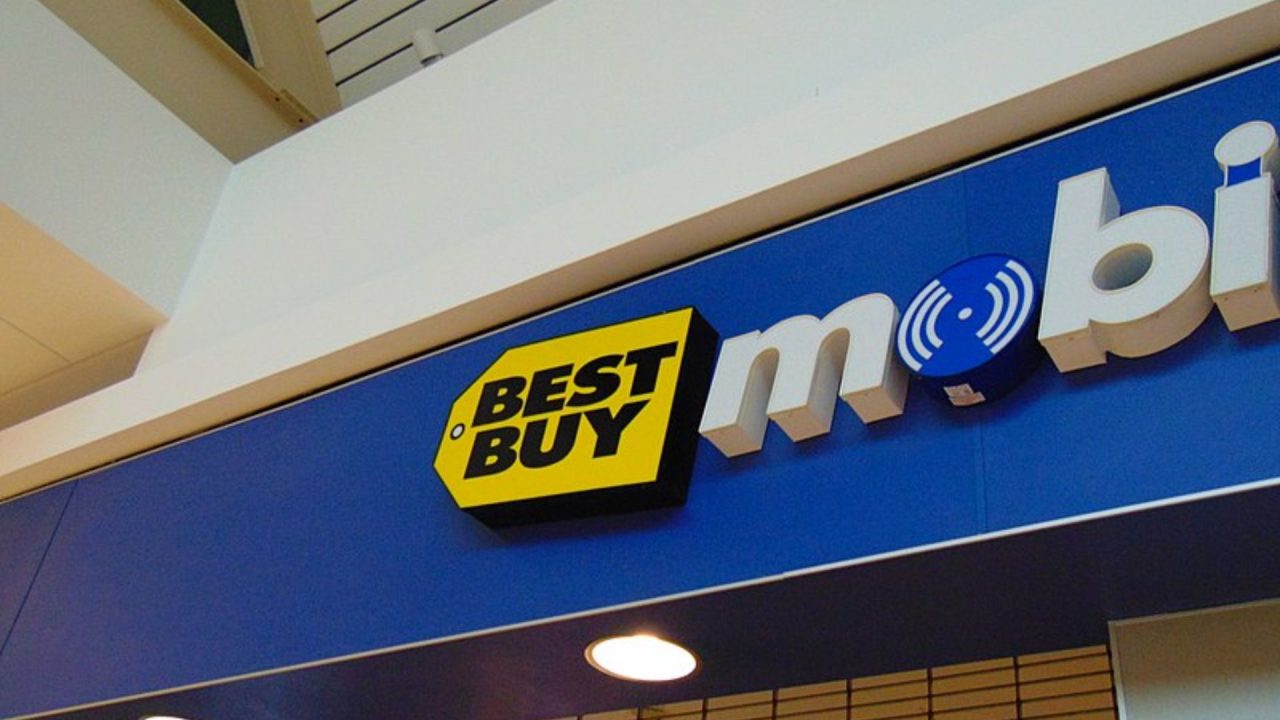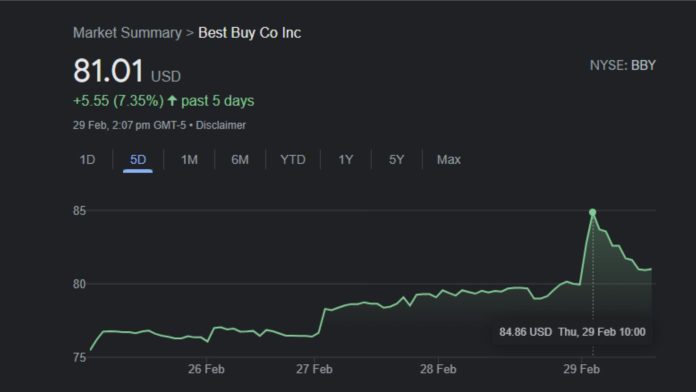Best Buy exceeded Wall Street’s revenue and earnings projections for the holiday quarter on Thursday, even amidst a phase of subdued consumer electronics demand and forecasted a softer year. For this fiscal year, Best Buy forecasts revenue between $41.3 billion to $42.6 billion, indicating a decline from the previous fiscal year’s total revenue of $43.45 billion.
Comparable sales are expected to range from flat to a 3% decline. One factor influencing sales in the upcoming year is its shorter duration. Best Buy mentioned that the additional week in the previous fiscal year augmented revenue by approximately $735 million and lifted diluted earnings per share by about 30 cents. In a Thursday news release, CEO Corie Barry expressed anticipation for the forthcoming year, expecting it to witness “increasing industry sales stabilization.”
She emphasized the company’s focus on enhancing customer experiences and industry positioning while aiming to elevate its operating income rate. Notably, improvements in this metric are expected as Best Buy capitalizes on adjustments to its annual membership program, which has emerged as a newer revenue driver.

Following the report, Best Buy’s shares surged nearly 5% in premarket trading. Here’s how the consumer electronics retailer performed for its fiscal fourth quarter of 2024 in comparison to Wall Street expectations, based on analysts’ survey by LSEG, formerly Refinitiv:
– Earnings per share: $2.72, adjusted versus $2.52 expected
– Revenue: $14.65 billion versus $14.56 billion expected
Best Buy faced slower demand, partly attributable to robust sales during the pandemic period, akin to home improvement companies experiencing heightened spending while consumers remained at home. Additionally, Best Buy’s product offerings, such as laptops, refrigerators, and home theater systems, typically involve pricier and less frequent purchases.
The retailer highlighted other challenges, including consumer selectivity in making significant purchases amidst inflation-driven price hikes and a return to balancing spending between services and goods post-pandemic.
Nevertheless, Best Buy delivered a quarter that surpassed expectations. In the three months ending Feb. 3, net income declined by 7% to $460 million, or $2.12 per share, from $495 million, or $2.23 per share, in the previous year. Revenue decreased from $14.74 billion in the prior year.
Comparable sales, encompassing both online and in-store sales open for at least 14 months, declined by 4.8% during the quarter, with reduced purchases of appliances, mobile phones, tablets, and home theater setups compared to the previous year. Conversely, gaming experienced robust sales during the holiday quarter. In the U.S., Best Buy’s comparable sales fell by 5.1%, with online sales decreasing by 4.8%.

During the quarter, traditional holiday shopping periods were Best Buy’s strongest, as noted by CFO Matt Bilunas during the company’s earnings call. While November saw a 5% decline in comparable sales year over year, December experienced only a 2% decline around the gift-giving holidays. January marked the weakest month of the quarter, with comparable sales down by 12%.
As consumers opt for fewer new purchases, Best Buy’s services business, including annual membership fees, in-home installation, and repairs, has provided a revenue boost, which the company anticipates will continue in the coming year.
Barry mentioned positive indicators, such as easing inflation and promising signs in the housing market. Although Best Buy’s sales are not directly linked to the housing market, which has witnessed slower turnover, home purchases often stimulate appliance and TV sales.
During the period, Best Buy distributed dividends totaling $198 million and allocated $70 million towards share buybacks. Additionally, the company announced a 2% increase in the regular quarterly dividend to 94 cents per share, payable in April, approved by its board of directors on Thursday.
As of Wednesday’s closing, Best Buy’s stock has appreciated nearly 2% year-to-date, underperforming the approximately 6% gains of the S&P 500 during the same period. Best Buy’s shares closed at $79.68 on Wednesday, reflecting a market value of $17.16 billion.


